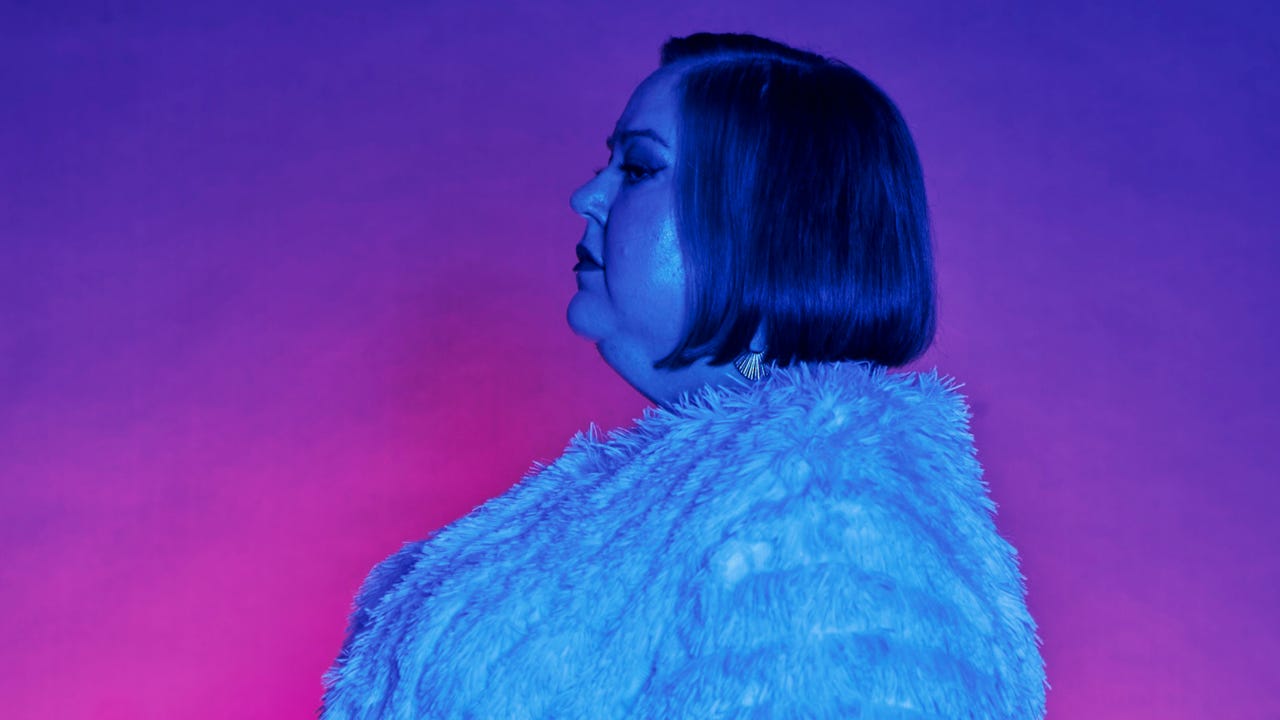Fat Liberation Goes From Online to IRL in "Your Fat Friend"
You can't love yourself out of oppression.
This piece is part of the Tribeca 2023 coverage here on “I Care About…” //
I watched Your Fat Friend — a film by Jeanie Finlay about author Aubrey Gordon — over the course of a few days. It’s not hard to watch, in fact, with the exception of a few moments, it’s a charming film. I was excited to watch this film because I am fat, the fattest I’ve ever been. I also have written quite a bit about being fat on the internet. It’s a lawless country, it’s the wild fuckin west.
Most people know Aubrey Gordon from her popular podcast, Maintenance Phase, and also from her books. Before that, Gordon was YrFatFriend, an anonymous blog that mused about the reality of being fat in the world. From dealing with comments from thin friends to dealing with travel, the blog was extremely popular, which came, for Gordon, with good and bad comments. We are all familiar with internet trolls, but a particular kind of vitriol is espoused at those of us who are fat online.
The film covers Gordon’s early life, featuring interviews with both her parents. In one scene, Gordon sits down with her mom and discusses how her mother’s perception of her body affected how Gordon viewed her own body.
I can’t tell when the documentary starts filming, but it is before Gordon had revealed herself to the public and charts through big events like her first book release, the release of Maintenance Phase, and even getting her COVID vaccine.
I’ve talked about this online a little and so have other fat people, but the hate for us comes from jealousy. If you believe what you’ve been told — if you eat right, exercise, and maintain a fit, low-fat body — you should be happy. And if you believe what has been said, being thin makes you more deserving of love, success, and safety. So, when thin people see happy, successful, fat people, they feel they’ve been short-changed and act out in violence.
Seeing a fat person get that job, gain notoriety, fall in love, makes thin people reevaluate the lie they’ve been sold before they are ready to. The people who leave hate comments on Gordon’s posts all believe in this lie, and all they know to do with that is lash out.
My favorite moments in the film show Gordon interacting with her parents, her mom reckoning with how she contributed to Gordon’s struggle with yo-yo dieting. We get to see her family and friends at Thanksgiving, her birthday, and other celebrations. We witness missteps from the people closest to her, like a woman joking that they have to turn their scales back 15 lbs after Thanksgiving dinner.
These innocuous, throw-a-way comments might seem like fun little quips, but they outline to the fat people in your life that you think their bodies are an error. That you might love them a little but you don’t love them whole because of their weight.
Being able to be fat and describe how it affects your life in a public way often garners lots of comments about how all you need to do is love yourself and things will be better. But as Gordon says, you cannot love yourself out of oppression. Loving myself isn’t going to stop doctors from not believing that anything that’s wrong with me isn’t just because I’m fat. It won’t make jobs want to hire me or public transportation more accessible. These are all things that require systemic change. Not internal but external.
There are other people who have written about fatness and fat liberation, and the film spotlights some of those books in the beginning. Some light b-roll captures the books The Body Is Not an Apology: The Power of Radical Self Love by Sonya Renee Taylor, Belly of the Beast: The Politics of Anti-Fatness as Anti-Blackness by Da'Shaun L. Harrison, and more.
While the film doesn’t go in-depth on the contents of these books, highlighting them as resources for people wanting to know more about anti-fatness is a great starting point.
This film is a great watch for people who are fat, but also those that aren’t. Most fat people know the statistics about how dieting doesn’t work, and we know about bias. People that aren’t fat need to hear it more, need to buy Gordon’s books, and listen to her podcast with Michael Hobbes. This film is charming, informative, moving, and relatable, and I hope you get out to see it, no matter your body type. I hope it helps you to learn to love and advocate for the fat people in your life.
The film's greatest achievement, I think, is humanizing Gordon. Once an anonymous figure, it sheds light on her decision to remain so for the years that she did and also documents the rollercoaster of emotions that came with the process of stepping out from behind the avatar.







